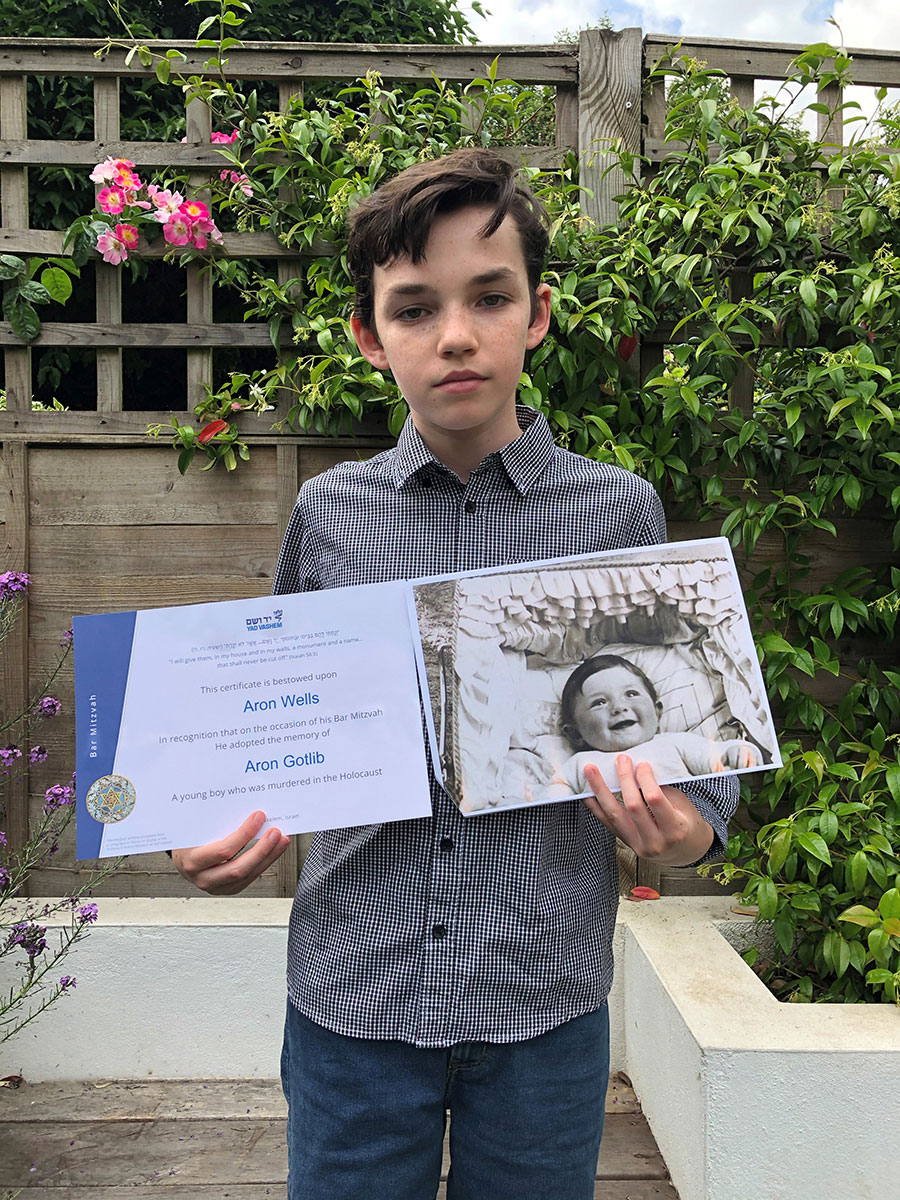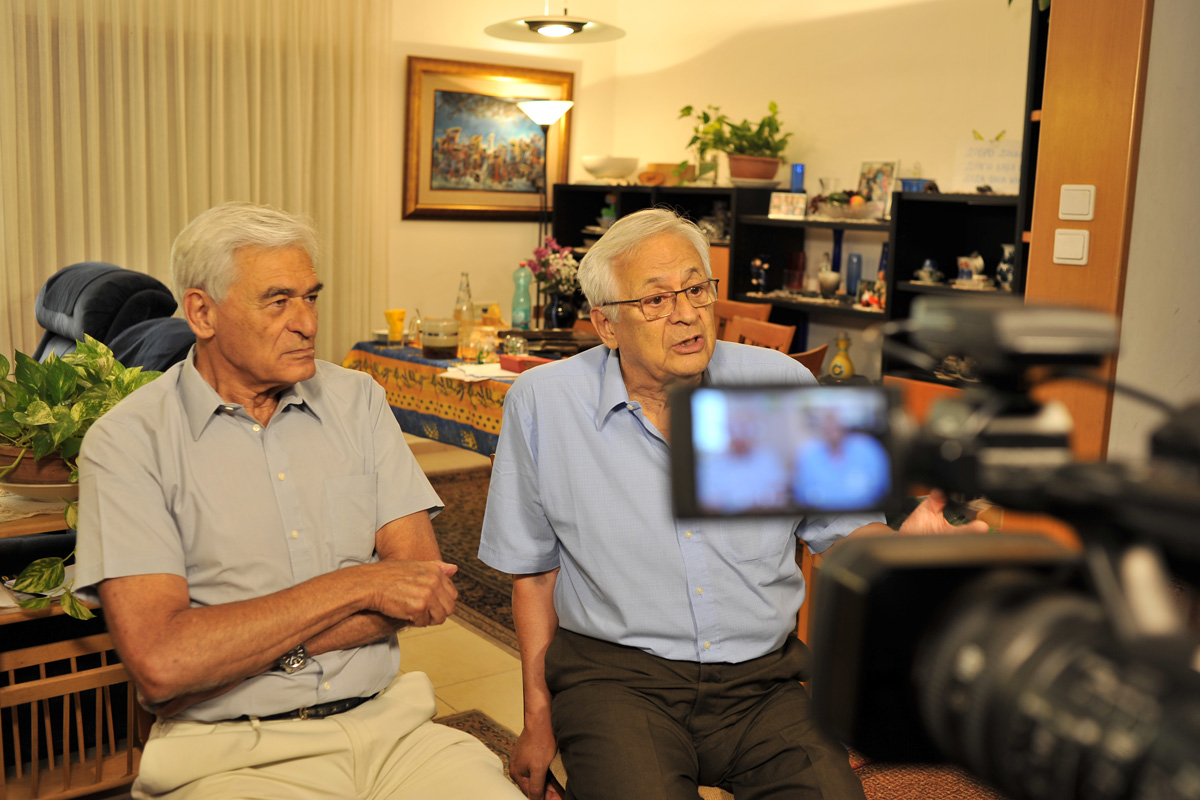Holocaust Education – The International School for Holocaust Studies
- 110,000 students from Israel and abroad, from both informal and formal educational frameworks, participated in seminars, preparatory studies for journeys to Poland and other programs of the International School for Holocaust Studies. The activities took place via both virtual platforms and traditional in-person settings.
- 68,000 teachers and opinion-shapers from Israel and abroad participated in educational activities – online and in-person – of the International School. The School held 426 seminars, 66 training days and 19 international seminars.
- 64,300 soldiers and officers of the IDF and other Israeli security forces participated in seminars and training days, as well as preparatory studies for journeys to Poland.
- 24,000 individuals participated in various online activities of the International School, most of them in Massive Open Online Courses (MOOCs).
- 1.9 million views were registered on YouTube of the films comprising the Holocaust Education Video Toolbox, a special educational platform developed by the International School. 4.7 million views have been recorded since the platform was uploaded in 2013.
Research and Publications – The International Institute for Holocaust Research
- The International Institute for Holocaust Research granted the annual Yad Vashem International Book Prize for Holocaust Research in Memory of Benny and Tilly Joffe z”l to two recipients this year: Dr. Alan Rosen for his work The Holocaust's Jewish Calendars: Keeping Time Sacred, Making Time Holy, and Prof. Johannes-Dieter Steinert for his book Holocaust und Zwangsarbeit: Erinnerungen jüdischer Kinder 1938–1945 (Holocaust and Forced Labor: Memories of Jewish Children 1938–1945).
- The Research Institute held 7 international research workshops, 5 book launches and 10 seminars for Holocaust scholars. The Institute also hosted and participated in lectures, book launches and scholarly panels and conferences throughout the year. The majority of the events were virtual.
- 12 senior researchers from Israel and abroad participated the International Institute's program for research fellows.
- 16 awards were granted to Master's and Doctoral students studying in Israel, and 3 scholarships were awarded by the Institute's Moshe Mirilashvili Center for Research on the Holocaust in the Soviet Union.
- 25 new publications were released by Yad Vashem: 12 research studies (among them 4 volumes of Yad Vashem Studies) and 6 memoirs, as well as7 diaries and other archival materials.
Artworks and Artifacts
- 965 artifacts and 564 works of art were added to Yad Vashem’s Collections. The Artifacts Collection now holds 42,900 items and the Art Collection comprises 12,670 pieces.
- 360 exhibition kits in the ready2print format were ordered and displayed in countries around the world, including, for the first time, in the United Arab Emirates. 9 different exhibitions are available in the unique format in a variety of languages.
Righteous Among the Nations
- 200 individuals were recognized as Righteous Among the Nations. At the end of 2020, over 27,800 individuals had been awarded the title.
Visits and Commemorative Events
- 190,000 people visited Yad Vashem in 2020 during the limited time it was open to the public.
- 70,500 individuals attended 466 online lectures for the general public in a variety of languages. 30 of them were on the topic of cinema and the Holocaust.
- 218 Twinning Kits were sent to Bnei Mitzvah in Israel and abroad.
- 71 events and memorial services were conducted, mostly online, including the Holocaust Remembrance Day ceremonies. A majority of these were held in conjunction with Holocaust survivor and next-generation organizations.
- 4,500 individuals attended online screenings accompanied by a short lecture as part of the fourth season of Yad Vashem's Film Club.
- 2,500 general public inquiries were answered.
Internet Activity
- 6.1 million visits from 233 countries and territories were recorded on the Yad Vashem website during 2020.
- 53.6 million video views have been recorded on Yad Vashem's YouTube channels in English, Hebrew, Arabic, German, Russian, Spanish, French and Farsi since their launch.
- 21,500 new followers joined Yad Vashem's Facebook page. At the end of 2020, the total number of followers was 209,000.
- 13,500 individuals joined Yad Vashem's Twitter accounts. As of December 2020, more than 94,000 individuals were following Yad Vashem on Twitter in English, French, German, Russian and Spanish.
- 27,000 individuals joined Yad Vashem's Instagram account. At the end of 2020, the total number of followers stood at over 82,000.
Documentation
- 2.7 million pages of Holocaust-era documentation were gathered by Yad Vashem. To date, Yad Vashem’s Archives, the largest and most comprehensive repository of its kind, contain some 220 million pages of documentation.
- 250,000 pages of documentation were digitized.
- Over 4,850,000 names of Holocaust victims, more than three-quarters of the victims of the Holocaust, are now documented in the Central Database of Shoah Victims’ Names. The source of more than half the total number of names in the online Names Database is from over 2.785 million Pages of Testimony, while the remainder are from archival lists and documents.
- 21,000 additional names of Holocaust victims were gathered, all of them from Pages of Testimony.
- 16,000 items – documents, diaries, photographs, artifacts and artworks – were collected as part of the national "Gathering the Fragments" campaign to rescue personal items from the Holocaust era. Since the project was launched in April 2011, 316,000 items have been received from 14,000 individuals.
- 10,000 images were added to the Photograph Archive. Yad Vashem currently houses 520,000 photographs, including 210,000 attached to Pages of Testimony and housed in the Hall of Names.
- 282 new Holocaust survivor testimonies were filmed and recorded prior to the outbreak of the COVID-19 pandemic. The Archives currently house 133,000 video, audio and written testimonies.
- 11,000 public inquiries for archival information were answered. Of these, 1,000 members of the public were assisted in the Library and Archives Reading Room, and 10,000 were online queries.
- 4,200 new titles were added to Yad Vashem's Library. The world's most comprehensive collection of published material about the Holocaust now holds 179,000 titles in 69 languages.
- 250 new films from a variety of genres were catalogued, and the searchable online film catalogue now includes 12,840 titles. Over 9,500 films are available for viewing at the Visual Center.
- 1,000 inquiries and requests for information regarding cinema and the Holocaust were answered.
- The 15th annual Avner Shalev Yad Vashem Chairman’s Award was presented to the French directors Patrick Sobelman and Hugo Sobelman for their film Golda Maria. The annual award is given for artistic achievement in a Holocaust-related film.










